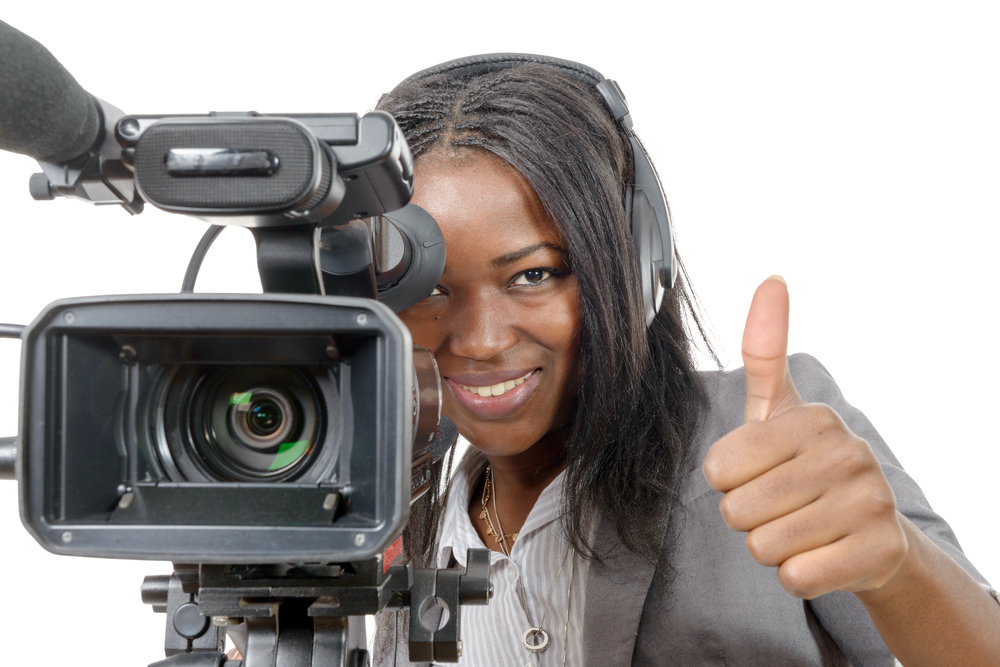Teen activists in the United Kingdom have created some amazing posters which reimagine movies like Titanic, Harry Potter, Doctor Who, and James Bond with black leads. The posters were created by a group of young activists known as Legally Black, in partnership with the activism group Advocacy Academy. When the subversive advertising organization Special Patrol Group saw them, they knew they deserved a wider audience, and they put them up in bus stations around Brixton, in south London.
It’s easy to see why. These posters are amazing.
The 17-year-olds behind Legally Black—Shiden Tekle, Liv Francis-Cornibert, Kofi Asante and Bel Matos da Costa—created the posters after Advocacy Academy asked them “what made them most angry and what they would like to change in society.”
“I’ve been racially abused since I was 12,” said Tekle to The Guardian. “And we are always looking at the media and never seeing any positive representations of black people. In big films, black characters are often playing criminals and drug dealers, and that quickly conditions people to believe that all black people are like that.”
“We’re calling on British media to tackle the under-representation and misrepresentation of Black British people in the media,” wrote Liv Francis-Cornibert, in a piece for iNews, “by giving black actors, writers and directors the chance to bring to life more varied, complex and authentic characters and narratives.”
“Our campaign challenges the notion of feeling like you do not belong in spaces outside of your archetypes,” she continued. “It rejects that you cannot be anything but the angry black woman or the black folk devil in the eyes of others, that your afro is unprofessional and that your value is determined by your proximity to whiteness.”
And it’s clear from the reaction on Twitter that their campaign is working.
Can’t stop looking at these posters from @legallyblackuk #representationmatters #Afrofuturism pic.twitter.com/02gGHqCiEk
— Joshua Asiko (@joshua_asiko) March 2, 2018
These posters are up all around Brixton and honestly look at how crazy they are 😭😭
Imagine having a black woman as the Doctor 👀👀👀@AdvocacyAcademy @legallyblackuk amazing work!! pic.twitter.com/0fY1vBJhYr— 🦋 أمل (@aaamall) March 1, 2018
can’t believe how amazing it is to see this! @legallyblackuk @AdvocacyAcademy #blackrepresentationmatters pic.twitter.com/SLjiV9zhIr
— ✊🏿✊🏽wakanda forever✊🏾 (@livcornibert) March 1, 2018
If ever there was something to make wading through the snow the day after a month in the Caribbean most definitely worth it – this is it.
Massive props to @AdvocacyAcademy @SpecialPatrols and the dope brains behind @legallyblackuk #legallyblack #brixton pic.twitter.com/7nL06Du86m
— Zahra (@ZahraDalilah1) March 1, 2018
“It’s not about taking a typically white show and making it black,” Francis-Cornibert said to MashableUK, “it’s about making a black show. Or a southeast Asian show. Any person of colour should feel like they’re accurately represented in the media. It should be about making shows that are authentic to those people.”
Diversity has become a particular pain point in the U.K. film industry, as numerous British black actors have to travel abroad to find their breakout roles. Part of this is simply a numbers game; the U.S. market is undeniably larger. However, British black actors have often pointed out that they have to go to the U.S. in order to get the nuanced, high-profile roles that make their careers, and they’ve called for greater diversity on their own country’s cable networks. As Idris Elba said in 2016, “The Britain I come from is the most successful, diverse, multicultural country on earth. But here’s my point: you wouldn’t know it if you turned on the TV.” Legally Black’s campaign very specifically portrays British blackness, and highlights the way black people in the U.K. are often left out of their own media.
As we’ve seen by the huge reaction to Black Panther, representation matters, and it radically affects our perceptions of each other and ourselves. We have to ensure that the images we see of marginalized people reflect the variety and complexity of their actual lives—and that the images we see of our own countries reflect the variety and complexity of its actual citizens.
(Via The Guardian; featured image: Shutterstock)
Want more stories like this? Become a subscriber and support the site!
—The Mary Sue has a strict comment policy that forbids, but is not limited to, personal insults toward anyone, hate speech, and trolling.—









Published: Mar 3, 2018 5:55 PM UTC